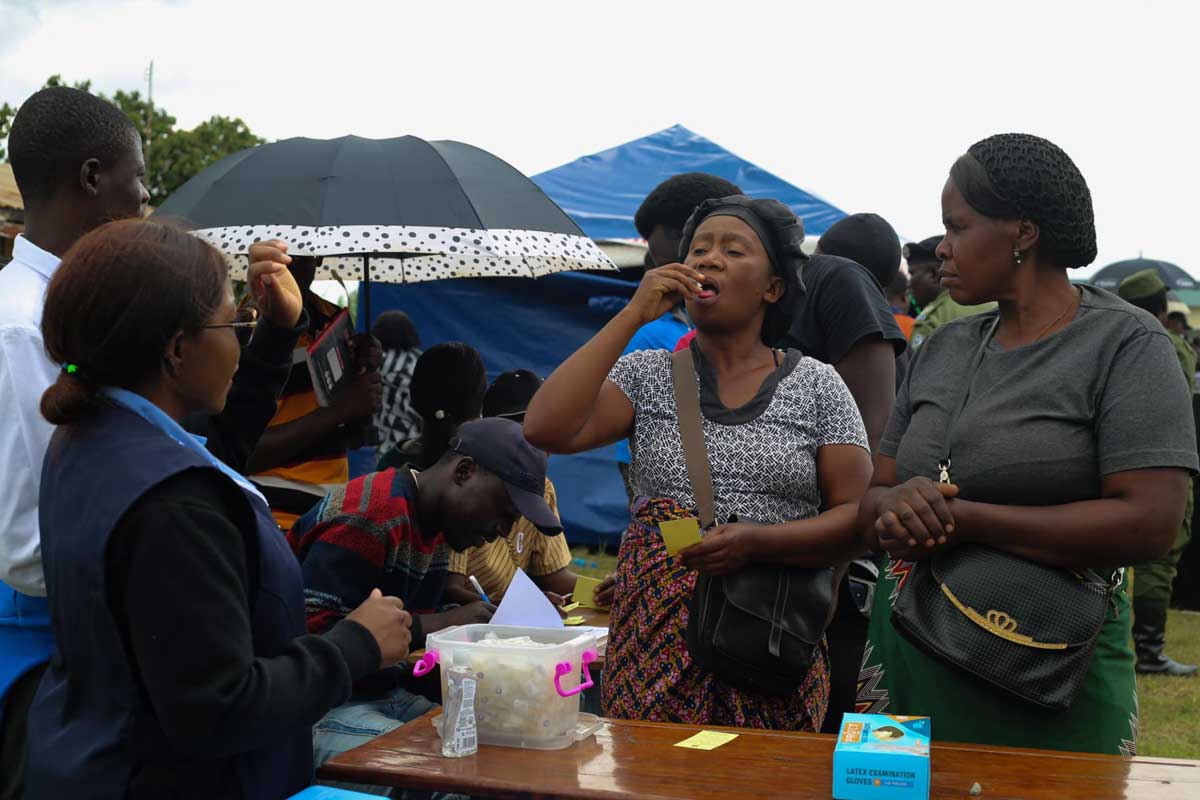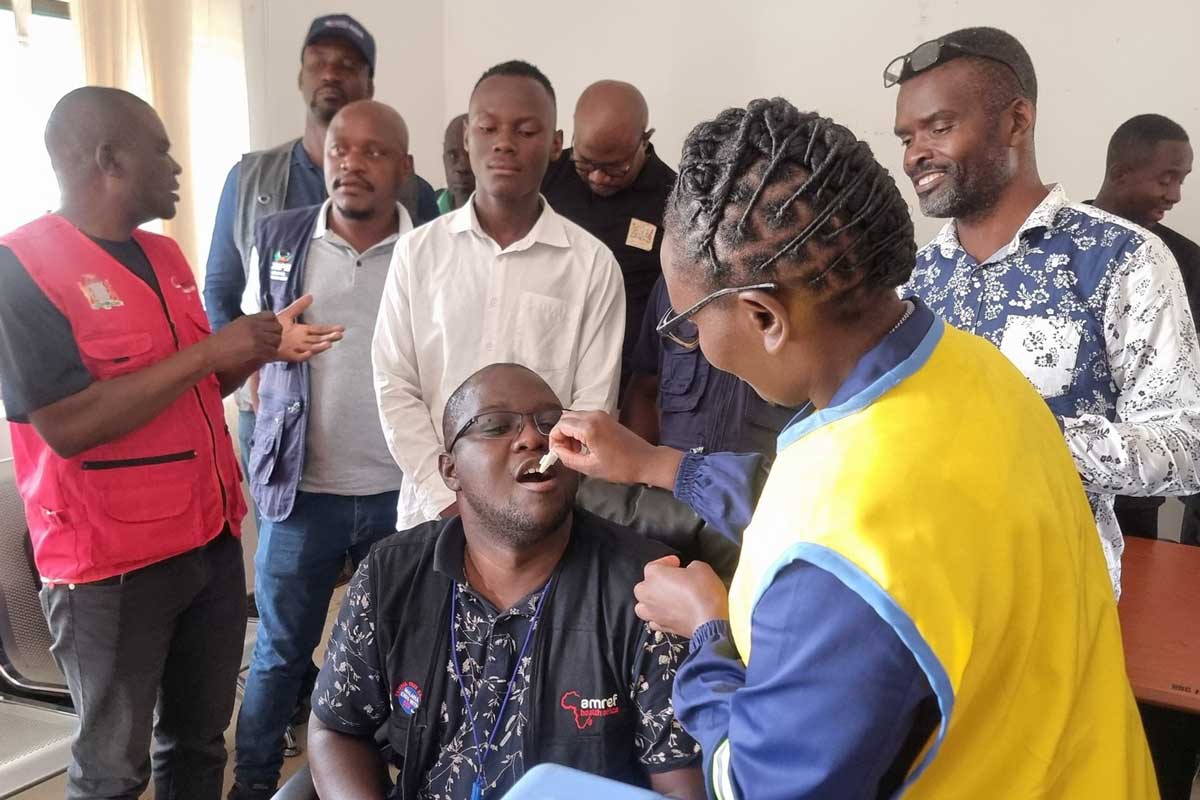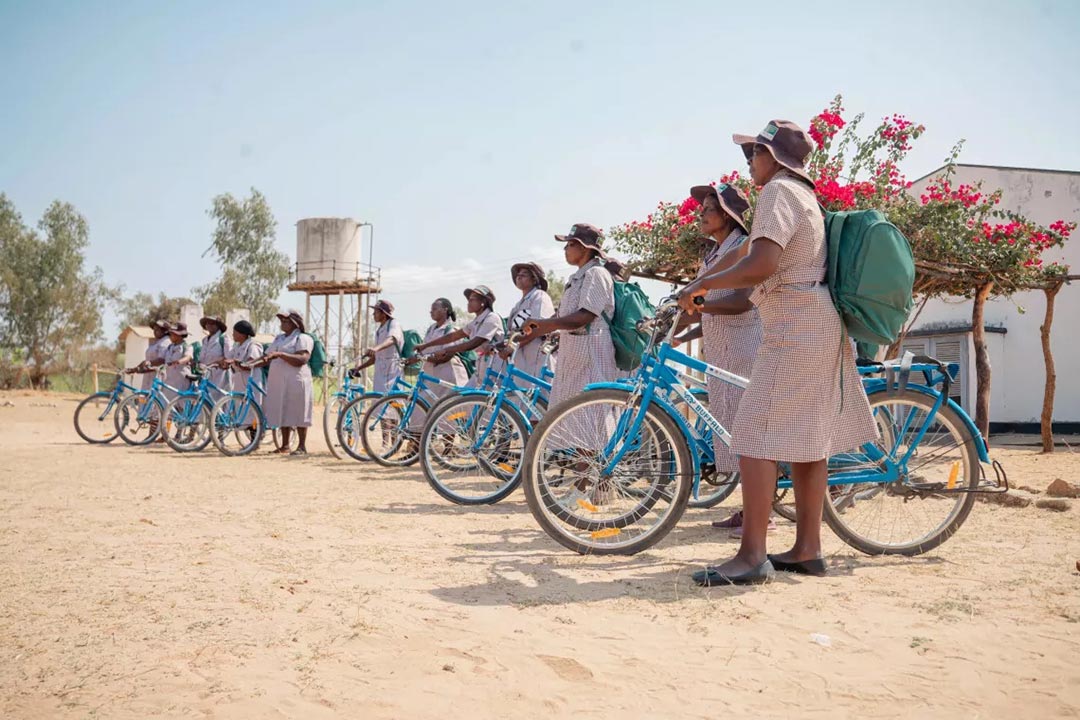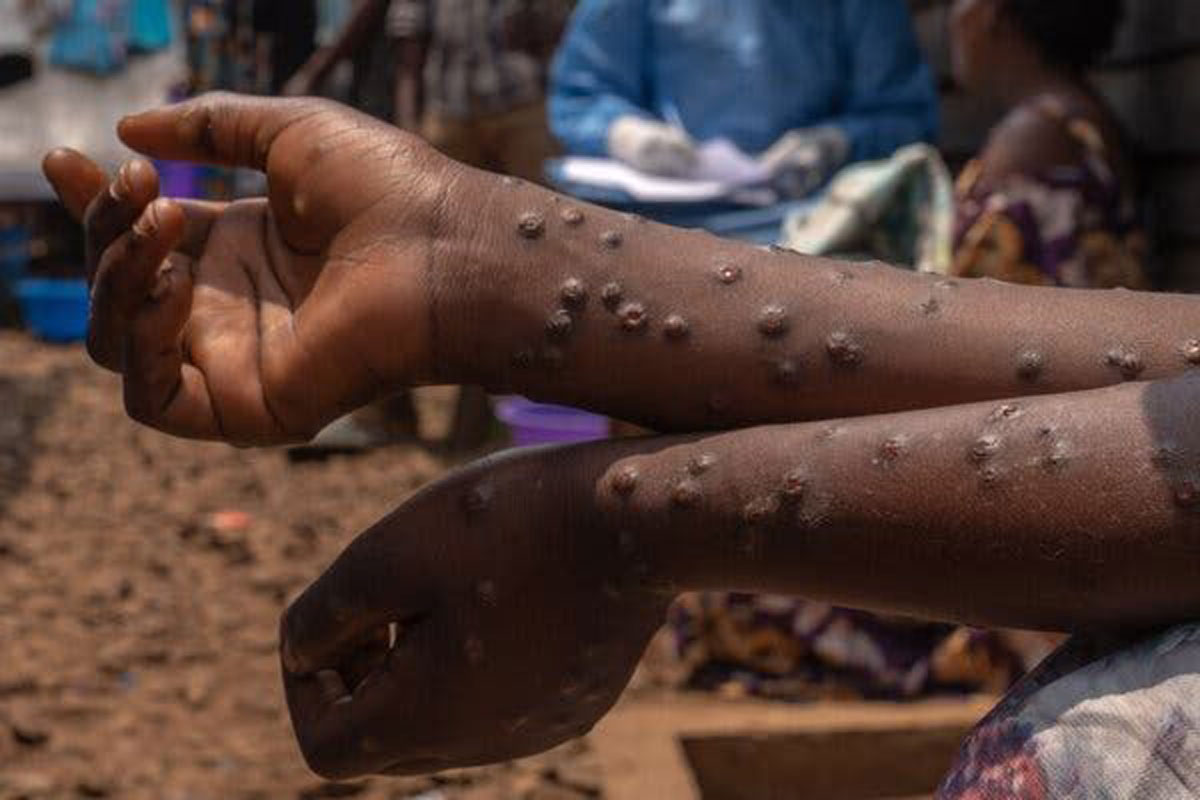How vaccines saved the economic life of a Zambian bordertown
News of a cholera outbreak killed trade on Zambia’s northeastern border overnight. A rapid vaccine roll-out provided economic CPR.
- 30 May 2025
- 5 min read
- by Tsitsi Bhobo

In January, street market traders’ livelihoods took a hit as cholera began to spread in Nakonde, Zambia, a town on the border with Tanzania.
A rapid roll-out of vaccines stamped out that outbreak, and now locals report that foreign travellers are stopping off again in the frontier town, and spending their much-needed forex. For traders like Hillary Mwale, that relief came not a moment too soon.
“It was bad. I’d sell ten grilled chickens a day to foreign bus passengers and crew, but when cholera hit, none stopped. I closed my street food stall,” he said.
Outbreak
The Zambia health ministry declared a cholera outbreak in Nakonde after the first cases were spotted in December 2024. By late February, nine people had died, and 269 had been infected.
Like many border towns, Nakonde, home to about 200,000 people, sees high population mobility: some 800 trucks a day, not to mention hired car drivers and traders’ buses from, Zimbabwe, Botswana and Congo pass through on their way to or from Tanzania’s port of Dar es Salaam. All that coming and going increases the risk of disease outbreaks.
But it’s also the town’s economic bedrock. To many locals, from traders like Mwale to motel owners, foreign travellers are highly valued because they carry US dollars, commonly used in Zimbabwe, pulas from Botswana or South African rands – stronger currencies than the local kwacha.
The arrival of cholera brought both movement and commerce to a halt. “Foreign travellers suddenly avoided stopping in Nakonde Town, driving straight to rest and eat on the Tanzania side of the border, afraid of contracting illness in Nakonde,” Mwale recalls.
“Sorry, but we don’t have cholera in Botswana; we could carry it from Nakonde,” explained Nico Modimeng, a Botswana contract driver who passes by Nakonde once every month to fetch cars for clients when they land at Dar es Salaam Port.
Mwale panicked, selling off his entire 54,000 kwacha (about US$ 2,000) merchandise at a 70% discount.

Act fast
When the outbreak was declared, Zambians had some idea of what they were in for. Thousands had been sickened by cholera in 2023, in one of the worst outbreaks in the country’s history.
To contain the fast-spreading bacterium, health authorities had to act fast. Fortunately, there were already vaccines available in country. In early 2024, Zambia had made an application for vaccine doses from the global oral cholera vaccine (OCV) stockpile, a Gavi-supported emergency repository managed by the International Coordinating Group on Vaccine Provision. That request had been approved, and as not all of those doses had been used at that time, there were doses on hand when bacterial infection began to spread in Nakonde.
200,000 doses were rapidly dispatched to the border town. On 7 January 2025, vaccination targeting residents aged one and over got underway.
“We quickly worked with the Zambia Red Cross on a multi-task approach to identify the hotspots, map out the case numbers – and vaccinate affected communities,” Philip Munkonge, the health director for Nakonde District, says.
The aim was to rapidly reach at least 190,000 people at greatest risk of the infection, he explains. The response effort also extended to treating 781 shallow water wells in slums and village.
“Some of us redundant traders volunteered to walk street by street with the vaccines mobile teams, because we wanted the disease to vanish and our markets thrive again,” Mwale says. By 15 January, the drive was wrapping up. The health workers and volunteers staffing the campaign's frontline had fully reached their target for vaccination in the town.
Have you read?
Calm waters
Today, cholera is in retreat in Nakonde: no fresh cases have been reported since April, says Munkonge. All patients have been discharged, he says.
And the sense of fear has gone from the town’s street food markets, says Shylet Thabethe, a mum of two who sells barbecued green maize cobs to foreign truckers and bus passengers on their way to or from Tanzania.
“The buses and trucks now stop again, and the passengers don’t fear touching our food,” she says.
Like Mwale, the outbreak hit Thabethe hard. Her business flopped overnight – from selling 50 maize cobs per day, she suddenly couldn’t even sell one. “Everyone was saying maize cobs carry cholera stains,” she explained. For weeks, her children stopped school as she could not afford levies and fees, she says.
Business is back at near-normal levels now, even in motels where foreign car drivers and truckers rest in Nakonde. For a while there, Mwale says, foreign clients were fearful of “even sleeping in our local motels, and saying they could catch cholera from blankets”. Now, they’re not only catching a night’s rest in Nakonde, but they are eating whatever they can buy locally – “though I notice a few still hesitate to drink local water, preferring bottled commercial water from the Tanzania side of the border,” Mwale reported.
Charles Sichitima, a councillor in Nakonde, says fast-spreading infectious diseases like cholera are not only an epidemiological emergency, but can bring financial ruin to municipal coffers. And if the municipality in question is a regional hub, like Nakonde, an outbreak can become an international health crisis in a matter of days.
It's only natural that neighbouring countries should seek to protect themselves - but protectionism always has a cost. “We are next door to Tanzania. If they don’t have cholera over there, their towns benefit at our expense,” he said, outlining why Nakonde must remain vigilant about any future risks of cholera.
“We are confident no more cholera will appear again,” says Mwale. If it happens, and the outbreak lingers for longer – street traders may never recover their losses.







